
Tel Aviv’s Gay Beach, Dog Beach, and Orthodox Beach
A tale of unlikely neighbors.
The length of Tel Aviv coastline stretching from Nordau Beach to Hilton Beach is an area rife with contradictions: it is tense and peaceful, hostile yet curious, conflicting but viable. Nordau Beach, which is surrounded by a wooden partition, is intended for the conservative-to-very-conservative Orthodox Jewish crowd and has separate days for men and women. To the other side of it stretches Hilton Beach, one of the world’s best gay beaches. The two are separated by a dog beach, which functions like a U.N. demilitarized zone.
This unique melting pot, formed by chance, has maintained its status quo for decades. But sometimes the sea does what it does best. “As soon as you go 50 meters into the water, the borderlines disappear,” says Zuri Shasho, manager of a lifeguard station in Tel Aviv. “Sometimes it causes chaos. Sometimes chaos leads to a small change.”
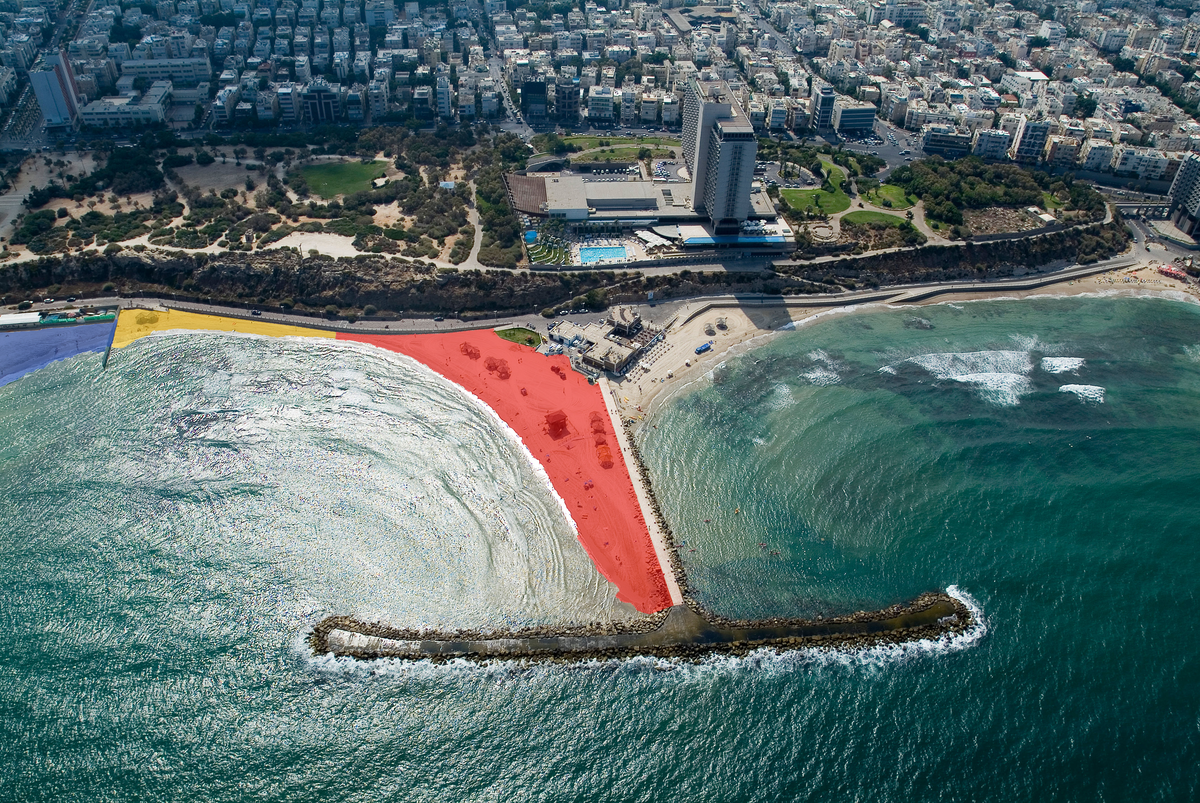
Hilton Beach, one of the world’s 10 hottest beaches according to the American website GayCities, developed spontaneously. It is located under the Hilton Hotel and Independence Park. Since its establishment in 1953, the park has become a meeting and cruising spot for gay men. In recent years, cruising has almost disappeared due to the rise of online dating platforms. At the same time, the Tel Aviv LGBTQ community has become one of the strongest in the world. In 1998, when the city’s Pride celebrations were declared official, so was the beach.


Nordau Beach, which is visited mostly by the Haredi Orthodox community, was segregated by gender a few decades ago. Women and girls use it on Sundays, Tuesdays, and Thursdays. Men and boys bathe on Mondays, Wednesdays, and Friday mornings. A few hours before Sabbath, on Fridays at noon, the Haredi leave the separated beach, and mixed bathing is allowed for the non-religious. A massive partition was erected during the late 1990s to separate Haredi Jews from the neighboring beach. Shasho says that lifeguards and the municipality treat the Haredi bathers with extreme sensitivity.

“The municipality arranges a place to pray at the entrance to the separate beach, and during the Sukkot holiday it builds a sukkah. Due to the bathers having a lot of suits and garments, thousands of hangers were added to the pavilions.” Many resources are also invested on the other side of the partition. Tel Aviv “invests millions in the beach during Pride Week. Tens of thousands come to it from all over the world, so they bring lifeguard reinforcements from other beaches and keep us here overtime,” says Shasho.
The dogs in the middle are unaware of all this. “There are a lot of dogs in the city, and the municipality set aside for them an undeclared strip of the beach,” Shasho explains. Without meaning to, the dog beach has become a barrier between the gay beach crowd and the Haredi community. “Although sometimes the dogs go into the separate beach and create a commotion, because the ultra-Orthodox usually don’t raise dogs.”
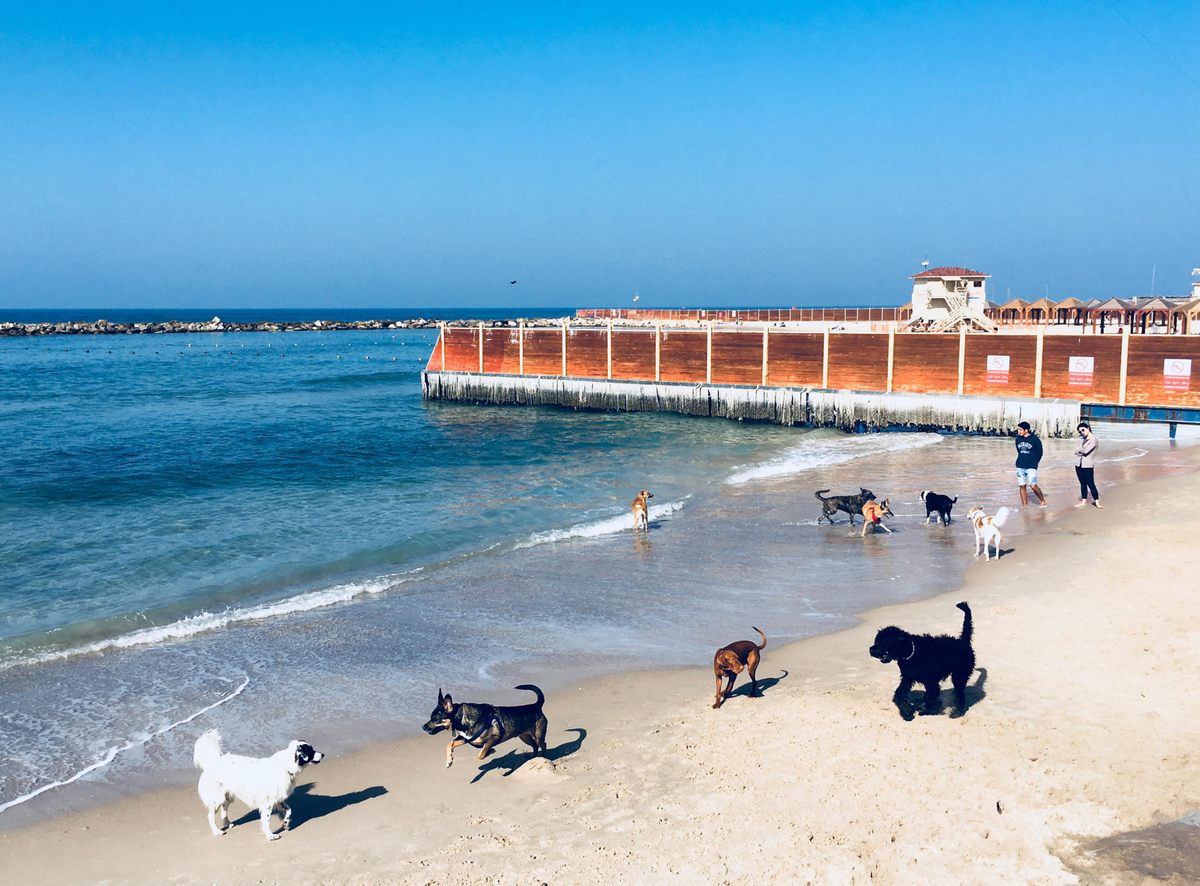
An Israeli-American documentary, Kosher Beach, hit the screens a few months ago. The film follows the “Brave Bunch”: Haredi Jewish women from Bnei Brak who find refuge in the gender-segregated beach, and are forced to fight for their right to visit it in the face of rabbinical objections.
The director, Karin Kainer, says her original plan was to document the entire bay, “but then I discovered the ‘Brave Bunch’ in the ultra-Orthodox beach and the movie quickly became a story of women’s empowerment.” Kainer says that during the three years in which she followed her heroines, the beach began reflecting a massive shift in Israeli Haredi society. “There, on the beach, it all burst out. More and more religious women arrive in bikinis and thongs; there are more conversations between mothers and daughters about wanting to make money, to buy clothes, to enjoy their autonomy and realize themselves.”

The “Brave Bunch” includes women of all ages and is led by Rebbetzin Idela Ravitz, whose family members hold key positions in the Israeli Haredi society. Her struggle revolves around what the Haredi bathers call “the descent from Mount Sinai,” the mountain where the Ten Commandments were given while, on its slopes, the People of Israel turned to worship the golden calf. “Ultra-Orthodox men and women arrive at the beach in packed buses, mainly during the summer,” Kainer says. “The buses park at the edges of Independence Park and the passengers have to cross the park on foot, which involves encountering scantily clad people, kissing couples, LGBT people. These are challenging moments, and my protagonists try and be as indifferent to them as possible. When encountering male bathers, some of them were embarrassed, giggled, lowered their eyes. Some wouldn’t allow their daughters to come along.”
“’The descent from Mount Sinai’ is why every year the rabbis issue bans on going to the beach,” Kainer says. “And these are always male rabbis.” For instance, the Edah HaChareidis rabbinical court has issued a statement that “we have been scandalized to discover the grave breaches taking place in the Tel Aviv separate beach, both in the access paths and the beach itself. Therefore, Da’as Torah strictly prohibits going to and staying on this beach, perilous for both women and men…”
“Fortunately,” Kainer says, “the group I document is not a bunch of outsiders, but very powerful women. Ravitz is a well-connected woman who knows how to repeal the prohibitions. Sometimes the efforts take time. During the filming, the beach was closed for four months [by the rabbinical court] and my heroines were really depressed. They eventually won, and they come to the beach regularly, in heat, rain or storm.”

While the film shows the challenges the gay beach presents to the Haredi community, Robert Ross says it also provides a solution for some of them. Ross, a French-born hairdresser residing in Tel Aviv with his partner and their two children, points out that the religious beach assigns separate bathing days for men and women. “Ultra-Orthodox men who don’t want to go to the beach without their families come to the gay beach and co-exist in peace.”
“The beach has become one of my regular spots since I came to Israel during the ‘80s, when I wasn’t even 18 yet,” Ross says. “It was relatively empty back then: except gays, it was for people who wanted to be left alone, such as women who wanted to sunbathe topless.” Ross was the first man in the global LGBTQ community to have children via an Indian surrogate mother, 12 years ago. “Until then, gay couples who wanted to start a family would team up with a woman and receive joint custody. We are the first gay couple in Israel whose children are home every day of the week.” According to him, families are one of the significant changes in the community and in Hilton Beach. “Gay men changed. They became couples and families. Today I come to the beach with my kids, as part of a family.”
When lifeguard Zuri Shasho hears Ross’ claims that he has “never heard a bad word between the two ‘tribes,’” he smiles bitterly. “Unlike civilians, lifeguards get all the shit. A Haredi man can accidentally swim into the gay beach and his friends will freak out. They will demand that I rescue him as though he was trapped in Hell.”

Shasho identifies himself as a second-generation lifeguard. “My father also worked on this beach. I grew up in the lifeguard tower, by the sea, and was officially certified in 1996. When I’m working on the separate beach, I need infinite patience. Women will argue with me if I’m allowed to walk around next to them. Sometimes we had to rescue women from the water in a less than optimal way, the body in the water and only the hands on the boat. Men will disobey me because God outranks me. ‘You won’t tell me that swimming to the pier is dangerous. The sea belongs to the Creator, not to you.’ Sometimes arguments become violent. They gang up on us, throwing sand in our eyes.”
Meanwhile, on the dog beach, everyone is throwing sand around. “And you can’t do anything about it,” a local blog warns, “because it’s a dog.” Tel Aviv is Israel’s canine capital, home to more than 30,000 dogs. The Hilton dog beach, a short, narrow strip of around 500 meters, is one of a number of such beaches. Unlike its neighbors, it’s a truly diverse beach. It has small dogs, large dogs, males, females, mongrels, and purebreds. But disharmonious co-existence, alas, haunts us all. The Clinic, a Tel Aviv veterinary center, made sure to issue the following recommendation: “dog beaches have many dogs running free. If your dog does not get along with other dogs, this pastime is best avoided.”




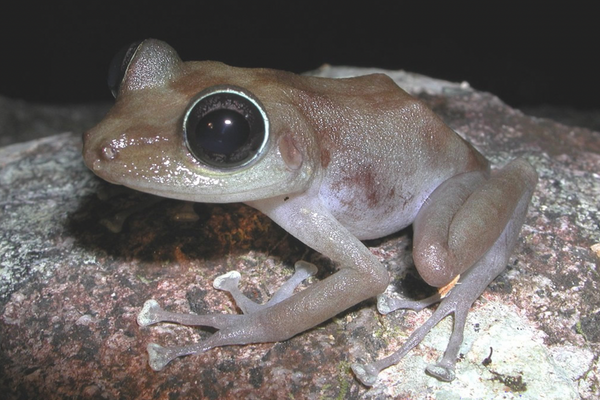
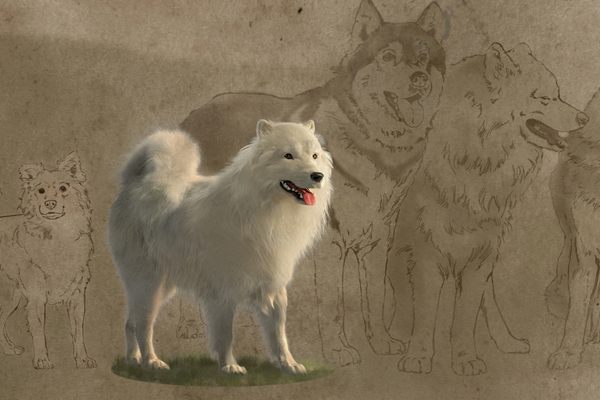
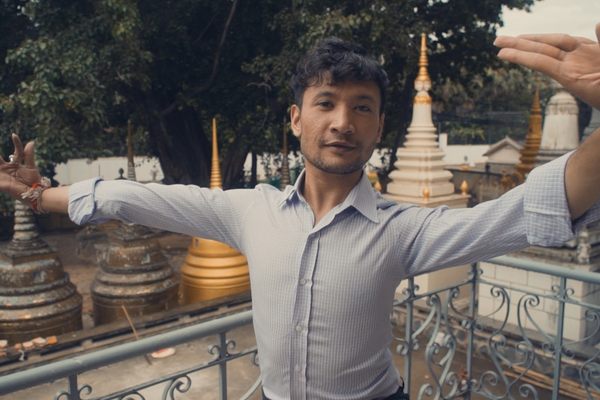










Follow us on Twitter to get the latest on the world's hidden wonders.
Like us on Facebook to get the latest on the world's hidden wonders.
Follow us on Twitter Like us on Facebook